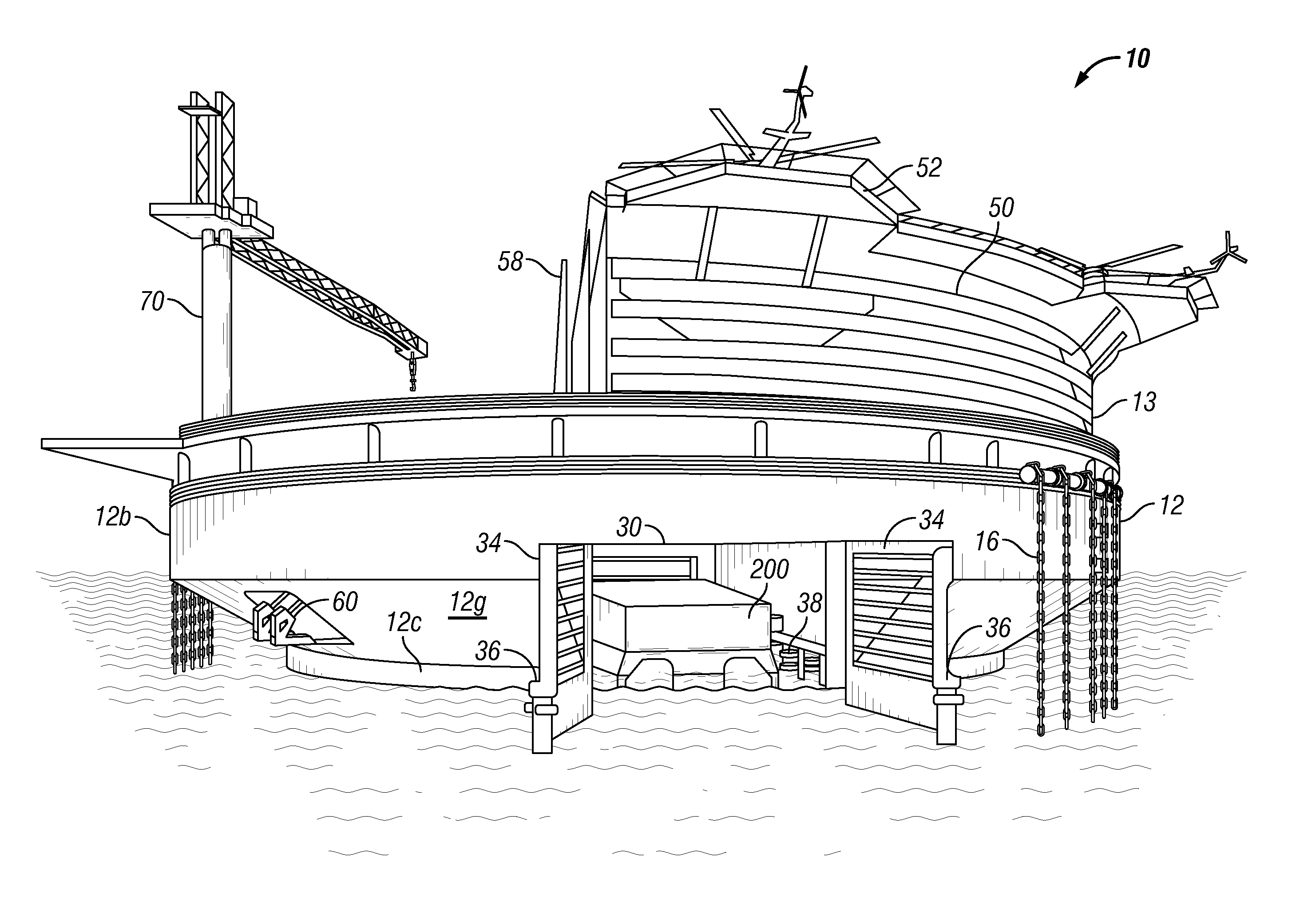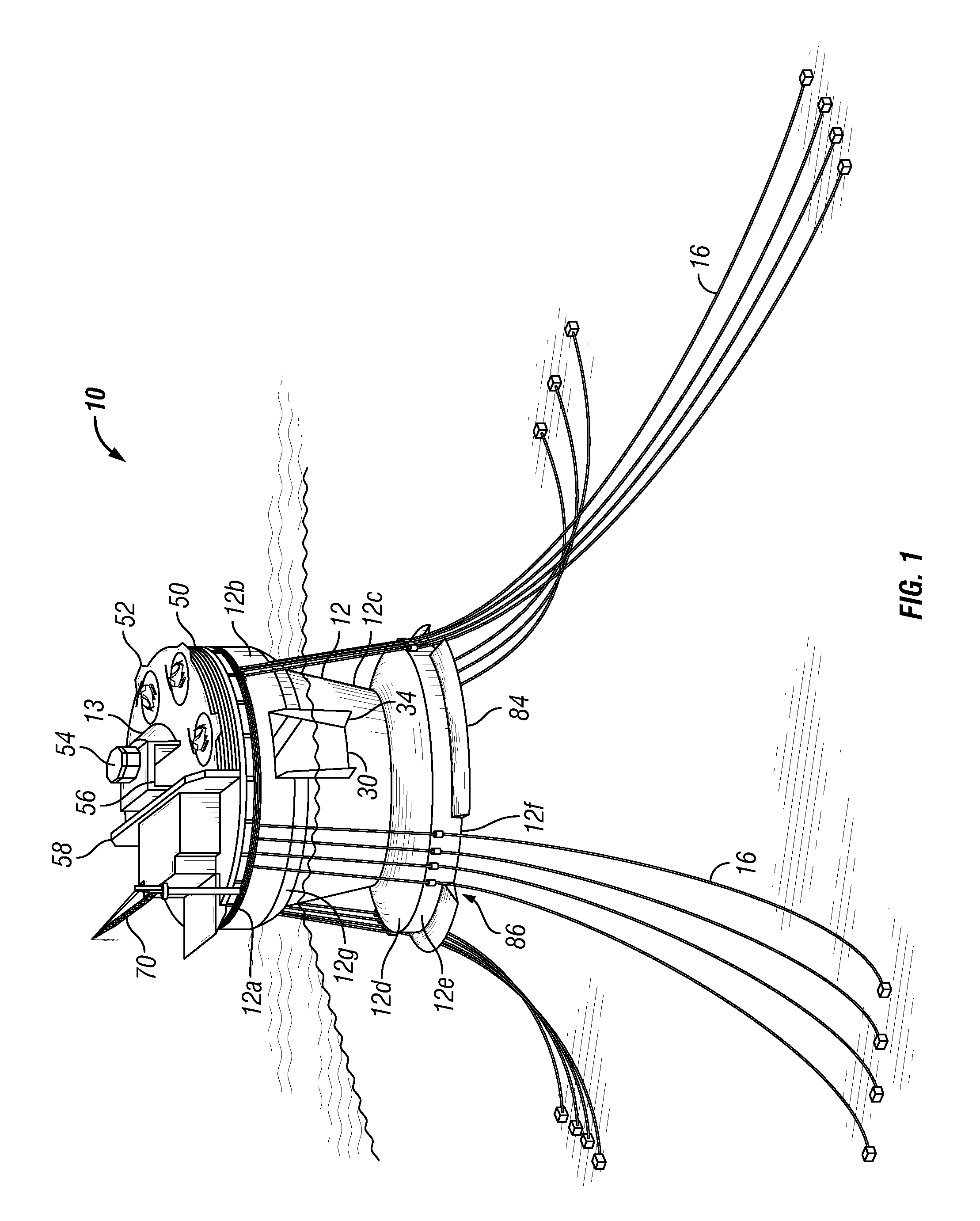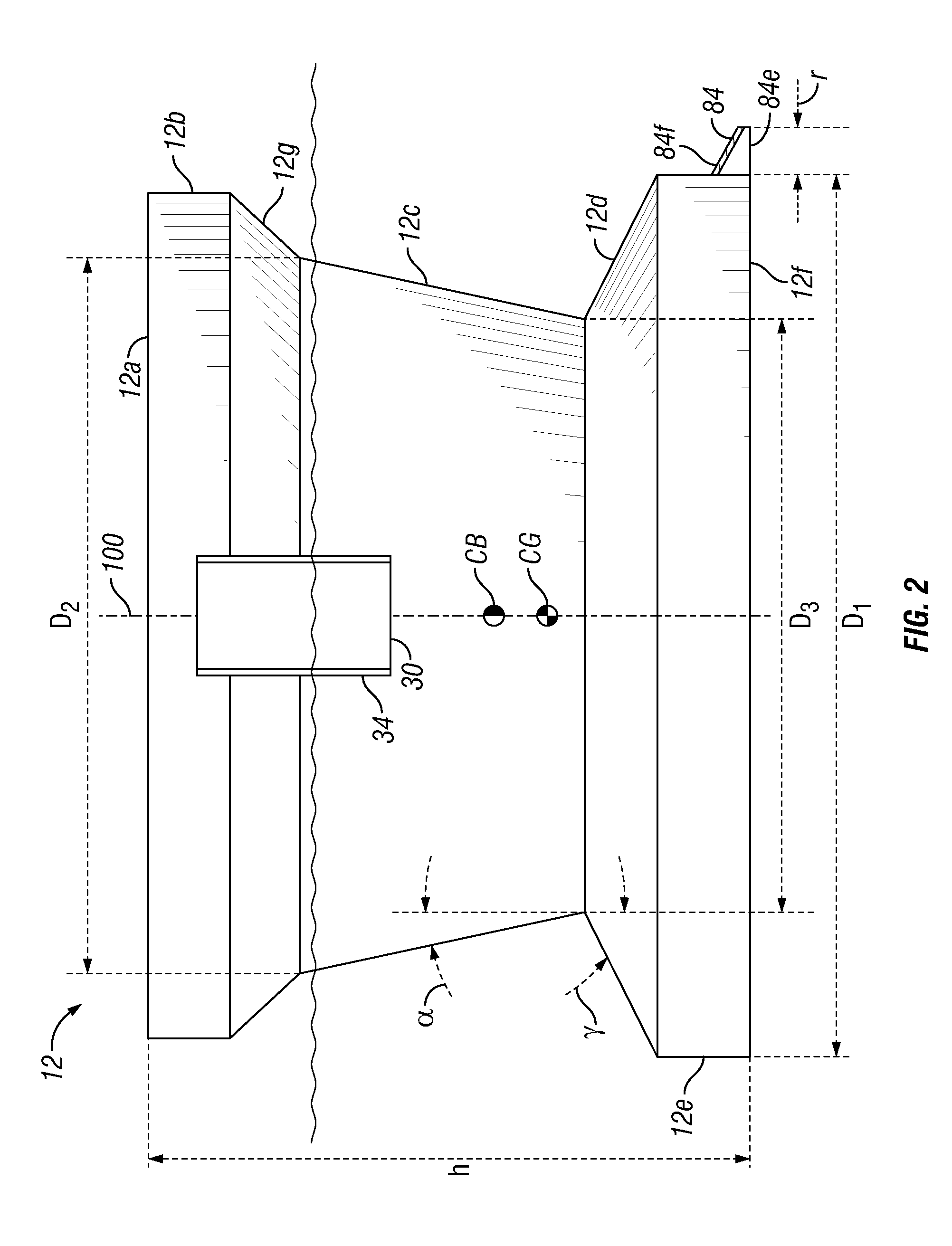Stable offshore floating depot
a floating depot and stable technology, applied in the field of offshore buoyant vessels, can solve the problems of fatigue and failure, acceleration, displacement and oscillation of the structure, and the major operating cost of the transportation of support and supplies from on-shore facilities, and achieve the effect of exceptional heave damping characteristics
- Summary
- Abstract
- Description
- Claims
- Application Information
AI Technical Summary
Benefits of technology
Problems solved by technology
Method used
Image
Examples
Embodiment Construction
[0044]FIG. 1 illustrates a buoyant offshore depot 10 for operationally supporting offshore exploration, drilling, production, and storage installations according to a preferred embodiment of the invention. Offshore depot 10 includes a buoyant hull 12, which may carry a superstructure 13 thereon. Superstructure 13 may include a diverse collection of equipment and structures, such as living quarters for a crew, equipment storage, a heliport, and a myriad of other structures, systems, and equipment, depending on the type of offshore operations to be supported. Hull 12 is preferably moored to the seafloor by a number of catenary mooring lines 16.
[0045]FIG. 2 is a simplified view of the vertical profile of hull 12 according to a preferred embodiment of the invention. Referring both to FIGS. 1 and 2, in a preferred embodiment, hull 12 of offshore depot 10 has a circular main deck 12a, an upper cylindrical side section 12b extending downwardly from deck 12a, an inwardly-tapering upper frus...
PUM
 Login to View More
Login to View More Abstract
Description
Claims
Application Information
 Login to View More
Login to View More - R&D
- Intellectual Property
- Life Sciences
- Materials
- Tech Scout
- Unparalleled Data Quality
- Higher Quality Content
- 60% Fewer Hallucinations
Browse by: Latest US Patents, China's latest patents, Technical Efficacy Thesaurus, Application Domain, Technology Topic, Popular Technical Reports.
© 2025 PatSnap. All rights reserved.Legal|Privacy policy|Modern Slavery Act Transparency Statement|Sitemap|About US| Contact US: help@patsnap.com



